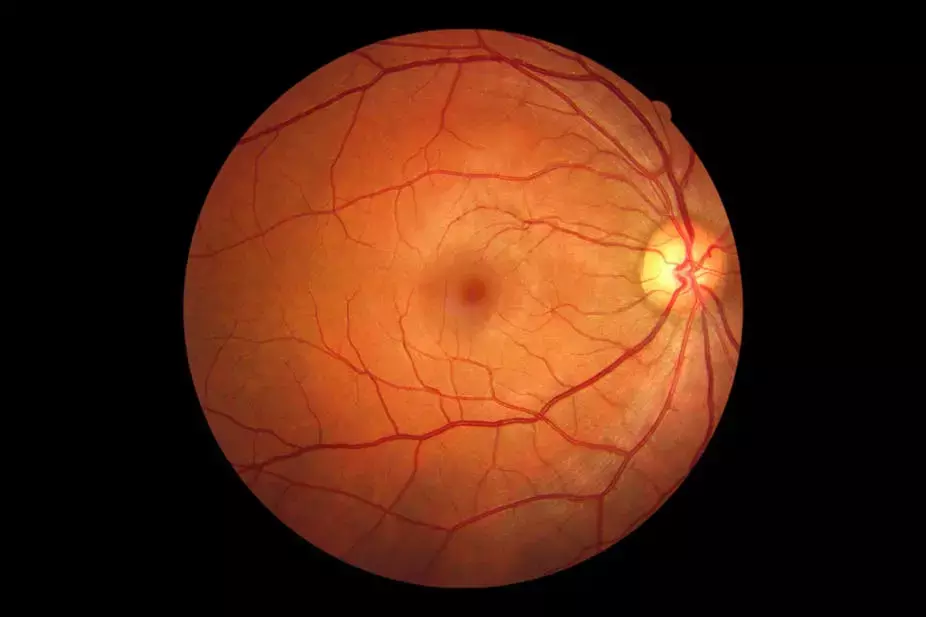- Home
- Medical news & Guidelines
- Anesthesiology
- Cardiology and CTVS
- Critical Care
- Dentistry
- Dermatology
- Diabetes and Endocrinology
- ENT
- Gastroenterology
- Medicine
- Nephrology
- Neurology
- Obstretics-Gynaecology
- Oncology
- Ophthalmology
- Orthopaedics
- Pediatrics-Neonatology
- Psychiatry
- Pulmonology
- Radiology
- Surgery
- Urology
- Laboratory Medicine
- Diet
- Nursing
- Paramedical
- Physiotherapy
- Health news
- Fact Check
- Bone Health Fact Check
- Brain Health Fact Check
- Cancer Related Fact Check
- Child Care Fact Check
- Dental and oral health fact check
- Diabetes and metabolic health fact check
- Diet and Nutrition Fact Check
- Eye and ENT Care Fact Check
- Fitness fact check
- Gut health fact check
- Heart health fact check
- Kidney health fact check
- Medical education fact check
- Men's health fact check
- Respiratory fact check
- Skin and hair care fact check
- Vaccine and Immunization fact check
- Women's health fact check
- AYUSH
- State News
- Andaman and Nicobar Islands
- Andhra Pradesh
- Arunachal Pradesh
- Assam
- Bihar
- Chandigarh
- Chattisgarh
- Dadra and Nagar Haveli
- Daman and Diu
- Delhi
- Goa
- Gujarat
- Haryana
- Himachal Pradesh
- Jammu & Kashmir
- Jharkhand
- Karnataka
- Kerala
- Ladakh
- Lakshadweep
- Madhya Pradesh
- Maharashtra
- Manipur
- Meghalaya
- Mizoram
- Nagaland
- Odisha
- Puducherry
- Punjab
- Rajasthan
- Sikkim
- Tamil Nadu
- Telangana
- Tripura
- Uttar Pradesh
- Uttrakhand
- West Bengal
- Medical Education
- Industry
Structural and Functional Abnormalities of Retina may signal Cognitive Impairment in T1D

Cognitive dysfunction is a growing and understudied public health issue in the ageing type 1 diabetic population and is difficult and time-consuming to diagnose. A recent study suggests retinal thickness and vasculature may signal a cognitive decline in type 1 diabetes patients. The study findings were published in THE JOURNAL OF CLINICAL ENDOCRINOLOGY & METABOLISM on December 30, 2020.
In patients with type-I diabetes, 86% have retinopathy and 42% vision impairment due to Diabetic Retinopathy (DR). Previous research had demonstrated an association between proliferative diabetic retinopathy (PDR, a complication of diabetes that can severely damage eyesight) and cognitive impairment in people with type 1 diabetes. Researchers at the Joslin Diabetes Center, conducted a study, to assess whether structural and vascular abnormalities of the retina, representing an extension of the central nervous system, are associated with cognitive impairment and other complications of type 1 diabetes. "Since we knew that there were cellular changes in the retina that might reflect changes in the brain, we were interested to see whether imaging techniques that visualize those changes in the retina might be reflective of changes in cognitive functions," said Ward Fickweiler, MD, a Joslin postdoctoral fellow and first author on the paper.
It was an observational cross-sectional study of 129 individuals with 50 or more years of type 1 diabetes (Joslin Medalist Study), conducted at a university hospital in the United States. Researchers tested the psychomotor speed, and immediate, and delayed memory. They performed the Optical coherence tomography (OCT) and OCT angiography (OCTA) to obtain neural retinal layer thicknesses and vascular density for superficial (SCP) and deep retinal capillary plexus (DCP). They used multivariable modelling to evaluate the potential confounders associated with outcomes in unadjusted analyses.
Key findings of the study were:
♦ In OCT angiography findings, the researchers found that decreased vascular density of the superficial plexus was associated with decreased psychomotor speed (point estimate, – 0.03) whereas decreased vessel density of the deep retinal capillary plexus was associated with worse delayed memory (point estimate, 0.08).
♦ In OCT findings, they found thinning of the retinal outer nuclear layer was associated with worse psychomotor speed both in non-dominant and dominant hands (P = .01 and P = .05, respectively).
♦ They noted that the thinning of the outer plexiform layer was associated with worse delayed memory score (point estimate, –0.45).
The authors concluded, "These findings suggest that noninvasive retinal imaging using OCT and OCTA may assist in estimating the risks for cognitive dysfunction in people with type 1 diabetes."
For further information:
Medical Dialogues Bureau consists of a team of passionate medical/scientific writers, led by doctors and healthcare researchers. Our team efforts to bring you updated and timely news about the important happenings of the medical and healthcare sector. Our editorial team can be reached at editorial@medicaldialogues.in.
Dr Kamal Kant Kohli-MBBS, DTCD- a chest specialist with more than 30 years of practice and a flair for writing clinical articles, Dr Kamal Kant Kohli joined Medical Dialogues as a Chief Editor of Medical News. Besides writing articles, as an editor, he proofreads and verifies all the medical content published on Medical Dialogues including those coming from journals, studies,medical conferences,guidelines etc. Email: drkohli@medicaldialogues.in. Contact no. 011-43720751


